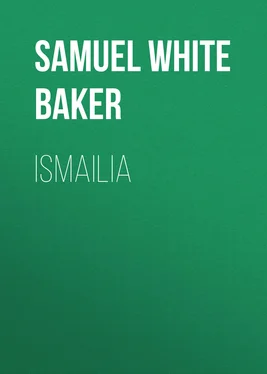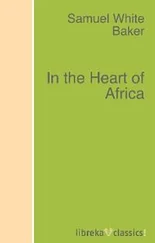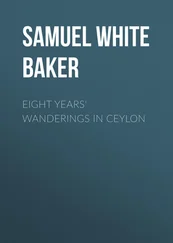Samuel White Baker - Ismailia
Здесь есть возможность читать онлайн «Samuel White Baker - Ismailia» — ознакомительный отрывок электронной книги совершенно бесплатно, а после прочтения отрывка купить полную версию. В некоторых случаях можно слушать аудио, скачать через торрент в формате fb2 и присутствует краткое содержание. Жанр: Путешествия и география, История, foreign_edu, foreign_antique, foreign_prose, на английском языке. Описание произведения, (предисловие) а так же отзывы посетителей доступны на портале библиотеки ЛибКат.
- Название:Ismailia
- Автор:
- Жанр:
- Год:неизвестен
- ISBN:нет данных
- Рейтинг книги:5 / 5. Голосов: 1
-
Избранное:Добавить в избранное
- Отзывы:
-
Ваша оценка:
- 100
- 1
- 2
- 3
- 4
- 5
Ismailia: краткое содержание, описание и аннотация
Предлагаем к чтению аннотацию, описание, краткое содержание или предисловие (зависит от того, что написал сам автор книги «Ismailia»). Если вы не нашли необходимую информацию о книге — напишите в комментариях, мы постараемся отыскать её.
Ismailia — читать онлайн ознакомительный отрывок
Ниже представлен текст книги, разбитый по страницам. Система сохранения места последней прочитанной страницы, позволяет с удобством читать онлайн бесплатно книгу «Ismailia», без необходимости каждый раз заново искать на чём Вы остановились. Поставьте закладку, и сможете в любой момент перейти на страницу, на которой закончили чтение.
Интервал:
Закладка:
"The usual Egyptian delays have entirely thwarted my plans. No vessels have arrived from Cairo, as they only started on 29th August. Thus, rather than turn back, I start with a mutilated expedition, without a SINGLE TRANSPORT ANIMAL."
Having minutely described the White Nile in a former work, "The Albert N'yanza," I shall not repeat the description. In 103 hours and ten minutes' steaming we reached Fashoda, the government station in the Shillook country, N. lat. 9 degrees 52 minutes, 618 miles by river from Khartoum.
This town had been fortified by a wall and flanking towers since I had last visited the White Nile, and it was garrisoned by a regiment of Egyptian soldiers. Ali Bey, the governor, was a remarkably handsome old man, a Kurd. He assured me that the Shillook country was in excellent order; and that according to the instructions received from the Khedive he had exerted himself against the slave trade, so that it was impossible for vessels to pass the station.
Fashoda was well situated for this purpose, as it completely dominated the river; but I much doubted my friend's veracity.
Having taken on board a month's rations for all hands, we started; and, with a strong breeze in our favour, we reached the Sobat junction on 16th February, at 12.30 p.m.
There we took in fresh water, as that of the Sobat is superior to the White Nile. At this season the river was about eight feet below the level of the bank. The water of the Sobat is yellowish, and it colours that of the White Nile for a great distance. By dead reckoning I made the Sobat junction 684 miles by river from Khartoum.
When I saw the Sobat, in the first week of January 1863, it was bank-full. The current is very powerful, and when I sounded in various places during my former voyage, I found a depth of twenty-six to twenty-eight feet. The volume of water brought to the Nile by this river is immense, and the power of the stream is so superior to that of the White Nile, that as it arrives at right angles, the waters of the Nile are banked up. The yellow water of the Sobat forms a distinct line as it cuts through the clear water of the main river, and the floating rafts of vegetation brought down by the White Nile, instead of continuing their voyage, are headed back, and remain helplessly in the backwater. The sources of the Sobat are still a mystery; but there can be no doubt that the principal volume must be water of mountain origin, as it is coloured by earthy matter, and is quite unlike the marsh water of the White Nile. The expeditions of the slave-hunters have ascended the river as far as it is navigable. At that point seven different streams converge into one channel, which forms the great river Sobat. It is my opinion that some of these streams are torrents from the Galla country, while others are the continuation of those southern rivers which have lately been crossed by the slave-hunters between the second and third degrees of N. latitude.
The White Nile is a grand river between the Sobat junction and Khartoum, and after passing to the south of the great affluent the difference in the character is quickly perceived. We now enter upon the region of immense flats and boundless marshes, through which the river winds in a labyrinth-like course for about 750 miles to Gondokoro.
Having left the Sobat, we arrived at the junction of the Bahr Giraffe, thirty-eight miles distant, at 11 a.m. on 17th February. We turned into the river, and waited for the arrival of the fleet.
The Bahr Giraffe was to be our new passage instead of the original White Nile. That river, which had become so curiously obstructed by masses of vegetation that had formed a solid dam, already described by me in "The Albert N'yanza," had been entirely neglected by the Egyptian authorities. In consequence of this neglect an extraordinary change had taken place. The immense number of floating islands which are constantly passing down the stream of the White Nile had no exit, thus they were sucked under the original obstruction by the force of the stream, which passed through some mysterious channel, until the subterranean passage became choked with a wondrous accumulation of vegetable matter. The entire river became a marsh, beneath which, by the great pressure of water, the stream oozed through innumerable small channels. In fact, the White Nile had disappeared. A vessel arriving from Khartoum in her passage to Gondokoro would find, after passing through a broad river of clear water, that her bow would suddenly strike against a bank of solid compressed vegetation—this was the natural dam that had been formed to an unknown extent: the river ceased to exist.
It may readily be imagined that a dense spongy mass which completely closed the river would act as a filter: thus, as the water charged with muddy particles arrived at the dam where the stream was suddenly checked, it would deposit all impurities as it oozed and percolated slowly through the tangled but compressed mass of vegetation. This deposit quickly created mud-banks and shoals, which effectually blocked the original bed of the river. The reedy vegetation of the country immediately took root upon these favourable conditions, and the rapid growth in a tropical climate may be imagined. That which had been the river bed was converted into a solid marsh.
This terrible accumulation had been increasing for five or six years, therefore it is impossible to ascertain or even to speculate upon the distance to which it might extend. The slave-traders had been obliged to seek another rout, which they had found via the Bahr Giraffe, which river had proved to be merely a branch of the White Nile, as I had suggested in my former work, and not an independent river.
I was rather anxious about this new route, as I had heard conflicting accounts in Khartoum concerning the possibility of navigating such large vessels as the steamers of thirty-two horse-power and a hundred feet length of deck. I was provided with guides who professed to be thoroughly acquainted with the river; these people were captains of trading vessels, who had made the voyage frequently.
On 18th February, at 10 A.M., the rear vessels of the fleet arrived, and at 11.40 A.M., the steamers worked up against the strong current independently. Towing was difficult, owing to the sharp turns of the river. The Bahr Giraffe was about seventy yards in width, and at this season the banks were high and dry. Throughout the voyage on the White Nile we had had excellent wild-fowl shooting whenever we had halted to cut fuel for the steamers. One afternoon I killed a hippopotamus, two crocodiles, and two pelicans, with the rifle. At the mouth of the Bahr Giraffe I bagged twenty-two ducks at a right and left shot with a No. 10-shot gun.
As the fleet now slowly sailed against the strong, current of the Bahr Giraffe, I walked along the hank with Lieutenant Baker, and shot ten of the large francolin partridge, which in this dry season were very numerous. The country was as usual flat, but bearing due south of the Bahr Giraffe junction, about twelve miles distant, is a low granite hill, partially covered with trees; this is the first of four similar low hills that are the only rising points above the vast prairie of flat plain.
As we were walking along the bank I perceived an animal ascending from the river, about two hundred yards distant, where it had evidently been drinking: we immediately endeavoured to cut off its retreat, when it suddenly emerged from the grass and discovered a fine lion with large shaggy mane. The king of beasts, as usual, would not stand to show fight in the open, but bounded off in the direction of the rocky hills.
It will be necessary to give a few extracts from my journal to convey an exact idea of the Bahr Giraffe. The river was very deep, averaging about nineteen feet, and it flowed in a winding course, through a perfectly flat country of prairie, diversified with forest all of which, although now dry, had the appearance of being flooded during the rainy season:—
Читать дальшеИнтервал:
Закладка:
Похожие книги на «Ismailia»
Представляем Вашему вниманию похожие книги на «Ismailia» списком для выбора. Мы отобрали схожую по названию и смыслу литературу в надежде предоставить читателям больше вариантов отыскать новые, интересные, ещё непрочитанные произведения.
Обсуждение, отзывы о книге «Ismailia» и просто собственные мнения читателей. Оставьте ваши комментарии, напишите, что Вы думаете о произведении, его смысле или главных героях. Укажите что конкретно понравилось, а что нет, и почему Вы так считаете.












